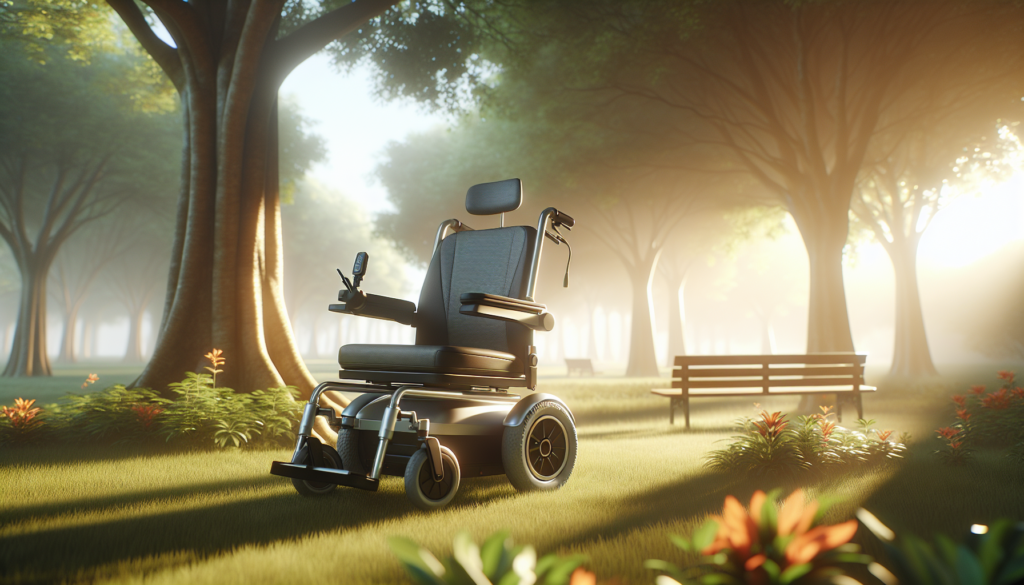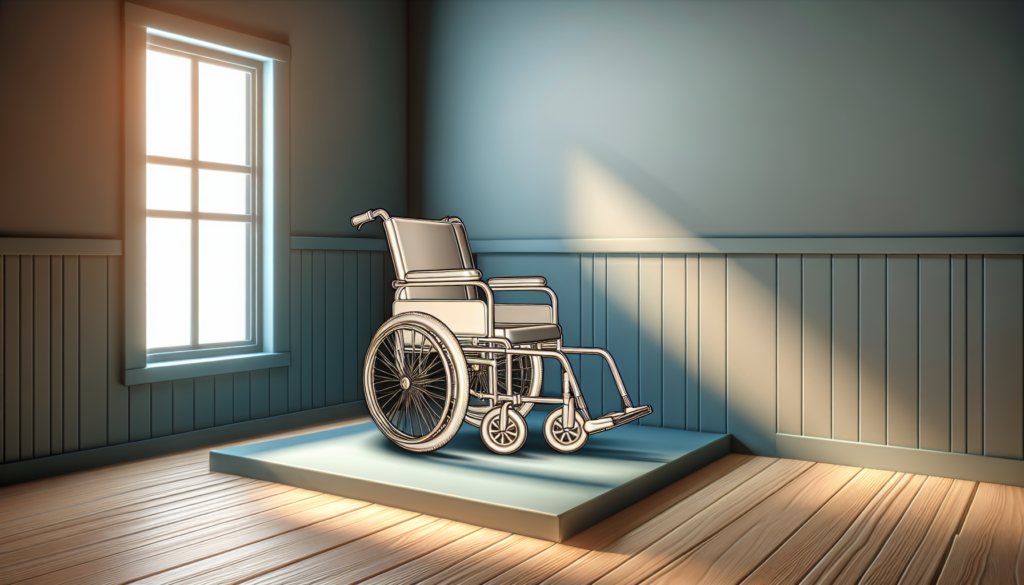
Selecting the best electric wheelchair can significantly enhance mobility and independence for those with limited physical ability. With numerous options available in the market, it can be overwhelming to determine which model truly fits your needs. Factors such as range per charge, charging time, weight capacity, speed, and climbing ability are crucial to consider when making your choice. Whether you’re looking for a lightweight option for easy transport or a more robust model for rugged terrain, this comprehensive guide by EKO Life MY will help you navigate through the important features and specifications of electric wheelchairs, ensuring that you make the right decision for your lifestyle and comfort.
Understanding Your Needs: Range and Mobility
When choosing an electric wheelchair, understanding your personal needs for range and mobility is crucial for ensuring comfort and accessibility in your daily activities. For instance, the Edegree EW1 offers a range of 20km per charge, making it suitable for users who may need to travel longer distances. Its 5-speed mode allows for a maximum forward speed of 6km/h, providing a balanced mix of performance and efficiency.
In contrast, if your mobility needs are simpler, the Edegree EW6 comes with a range of 10-15km per charge, which might suffice for less demanding outings, but features dual motors optimized for smoother acceleration and ease of use in varied terrain. Additionally, its weight of just 14.8kg makes it one of the lighter options available, which may benefit those who will be transporting their wheelchair frequently. Initially focusing on the mobility features also means considering the climbing capability, as different models can handle various inclines.
The Stonbike TU-04, for example, can manage a 25° incline, making it an excellent choice for individuals living in hilly areas. Meanwhile, it also boasts a range of 25km per charge and a maximum load of 150kg, catering to users that require a bit more strength from their wheelchair. Evaluating these aspects allows potential buyers to select an electric wheelchair that best matches their lifestyle, ensuring a blend of performance, safety, and convenience in daily use.
Battery Types Explained: Lithium vs Lead-Acid
Additionally, Lead-Acid batteries are more common and well-understood, making them a suitable option for budget-conscious users. However, you should consider their weight, which is significantly heavier at 38kg for the Edegree EW1, affecting portability. The climbing ability is also a consideration when choosing between them; while Lead-Acid can handle inclines up to 13°, Lithium batteries often perform just as well and sometimes better, depending on the motor specs. For instance, the Stonbike TU-04 with a Lithium battery can tackle steeper climbs of up to 25°, showcasing the capability of Lithium-powered wheelchairs. Depending on your specific needs, understanding these battery types will guide you in making an informed decision about which electric wheelchair best suits your lifestyle and mobility requirements.
Weight Considerations: Finding the Right Balance

When selecting an electric wheelchair, one of the key considerations is the weight of the device. The Edegree EW6, for instance, weighs 14.8kg, making it one of the lighter options available, which can be beneficial for users who need to transport their wheelchair frequently. In contrast, the Edegree EW1 weighs a heftier 38kg, which might not be as convenient for on-the-go individuals. Lightweight wheelchairs, like the EW6, can provide increased versatility, allowing users to travel more easily without feeling burdened by the weight of their wheelchair.
Moreover, it is essential to consider the maximum load capacity; both the Edegree models support up to 100kg, while the Stonbike TU-04 can handle up to 150kg, offering more options for heavier users or those carrying additional gear during transport. Another factor to keep in mind is how each model’s weight correlates with stability and performance. For instance, the Stonbike TU-04’s heavier 28kg frame enhances its climbing ability at 25° degrees, making it ideal for users who need reliable support on different terrains.
On the other hand, lighter models may provide more agility and easier maneuvering in tight spaces, although they may not offer the same climbing capabilities. Balancing weight with the user’s specific needs will ensure the chosen electric wheelchair will provide both comfort and practicality in everyday life.
Speed Matters: Choosing the Right Forward and Reverse Speeds
When selecting the perfect electric wheelchair, understanding the forward and reverse speed capabilities is crucial for ensuring safe and efficient mobility. Generally, most users might prefer a model that balances speed with comfort. For instance, the Edegree EW6 offers a forward speed of up to 8km/h and a reverse speed of 8km/h as well, making it suitable for those who value a bit of excitement in their movement while maintaining control. In contrast, the Edegree EW1 has lower speeds at 6km/h in both forward and reverse, which might appeal more to users looking for a steady pace for everyday activities. Assessing your lifestyle and environment can help determine what speed range would be ideal for your needs.
Another essential factor to consider when evaluating speed is the terrain you’ll navigate. If you plan on frequently climbing inclines, like the 13° degree capability of the Edegree EW1 or even the robust 25° degree capability of the Stonbike TU-04, speed may play a vital role in your wheelchair’s performance. Balance between speed preferences and climbing ability is key. A dual motor system, as seen in all three models, provides the necessary torque for maneuvering different surfaces while maintaining reasonable speeds that ensure comfort and safety. Therefore, by carefully considering these elements, you can select an electric wheelchair that not only meets your mobility needs but also enhances your independence.
Climbing Ability: Evaluating Terrain Challenges
When selecting an electric wheelchair, one of the vital aspects to consider is its climbing ability, particularly if you navigate varied terrains regularly. For instance, the Edegree EW1 boasts a climbing capability of 13° which makes it suitable for slightly hilly areas, while the Stonbike TU-04 can tackle steeper inclines with a climbing ability of 25°. These features are crucial for individuals living in regions with gradients or elevated pathways as they can significantly impact mobility and independence. If you’re an outdoor enthusiast or require access to locations with changes in elevation, prioritizing a wheelchair like the Stonbike TU-04 might serve you better than the others in this comparison.
Max Load Capacity: Ensuring Safety and Comfort

When selecting an electric wheelchair, one vital consideration is its max load capacity, which ensures both safety and comfort for the user. Each model has a specific weight limit, and exceeding this can compromise the functionality of the wheelchair, leading to potential safety hazards. For instance, the Edegree EW1 and Edegree EW6 both have a max load capacity of 100kg, making them suitable for users within that weight range. On the other hand, the Stonbike TU-04 can support a higher max load of 150kg, offering additional options for heavier users or those who may need to carry extra items.
Understanding the load capacity is fundamental for a reliable choice that meets your needs without sacrificing safety. In addition to the max load, consider the overall design and weight of the electric wheelchair. The Edegree EW1 weighs 38kg, making it less portable compared to the lighter Edegree EW6 at 14.8kg. A heavier wheelchair may be more stable, but portability can be a priority for some users. Be sure to evaluate all features, including battery type, charging time, and climbing ability, in conjunction with the max load capacity to select the best electric wheelchair tailored to your requirements and lifestyle.
Charging Time: Convenience vs Performance
When selecting an electric wheelchair, charging time plays a crucial role in balancing convenience and performance. For instance, the Edegree EW6 and Edegree EW1 both require 6 to 8 hours for a full charge, delivering ranges of 10-15km and 20km, respectively. The Stonbike TU-04 outshines the others, boasting a significantly shorter charging time of just 3 to 5 hours while offering an extended range of 25km. This quicker charging capability can be a vital factor for users who need to maintain independence and require a wheelchair that supports frequent use without extended downtime.
Additionally, the battery type and size contribute to overall efficiency. The lithium battery of the Edegree EW6 and Stonbike TU-04 often leads to better performance compared to the lead-acid counterpart in the Edegree EW1. Therefore, if you’re someone who values rapid recharging and longer distance travel, the Stonbike TU-04 presents an attractive option, while heavier users might appreciate the generous weight capacity of the Stonbike, accommodating up to 150kg. Thus, weighing these factors can guide you in making the right choice that aligns with your lifestyle needs.
Comparing Models: Edegree EW6, EW1, and Stonbike TU-04
When it comes to selecting the ideal electric wheelchair, comparing models is crucial. The Edegree EW6, EW1, and Stonbike TU-04 each present a unique set of features tailored to different needs. The Edegree EW6, priced at RM 4,388, offers a range per charge of 10-15 km and a lightweight design at 14.8 kg, making it an excellent choice for those who value mobility without the burden. With a dual motor brushless motor, it achieves a forward speed of up to 8 km/h and can tackle slopes of less than 10 degrees, providing a smooth riding experience in urban environments.
In contrast, the EW1, costing RM 2,499, boasts a longer range of 20 km and features a lead-acid battery. Although it weighs more at 38 kg, its 13-degree climbing ability makes it suitable for more challenging terrains, albeit with a slightly lower speed limit of 6 km/h.
Final Thoughts on Choosing Your Ideal Electric Wheelchair

Selecting the right electric wheelchair is a crucial decision that can significantly affect your mobility, independence, and overall quality of life. As we have discussed the specifications of various models like the Edegree EW6, Edegree EW1, and Stonbike TU-04, it’s clear that each model offers unique advantages depending on your needs. Consider factors such as range per charge, weight, charging time, and climbing ability before making a selection. These key attributes will help ensure that your chosen electric wheelchair caters to your specific lifestyle and offers the comfort and performance you deserve.
Additionally, it’s important to factor in your budget and consider the long-term investment in your mobility. While options like the Edegree EW1 may be more economical, higher-priced options may offer enhanced features, improved comfort, or better support for heavy loads. Assessing how each model aligns with your day-to-day activities will enable you to make an informed choice. Take your time to test different electric wheelchairs and consult with professionals if necessary, ensuring that you find the perfect fit for your needs.

The blog summary is very vague, could you give us a clearer idea of what the blog is about?
Hello Sophia Tan, I apologize if the blog summary was unclear. Our blog is actually about Eko Life Malaysia, which empowers bicycle, ebike, and escooter enthusiasts through affordability, quality products, professional servicing, and community building. We have various blog posts that share tips, experiences, and product reviews. If you’re looking for more specific information, I’d be happy to guide you. For more details or inquiries, feel free to reach out to us at [email protected] or +60 3-7890 3042.
Really, no summary at all? I’m so confused, hoping to see a proper blog post soon
Thank you for sharing your thoughts, Cyril. I apologize for the confusion, and I’ve gone ahead to provide a summary for this blog post. Our team understands the importance of having clear summaries for our content. We’re constantly working to improve and provide better reading experiences for our audience. If you have any specific questions or topics you’d like to see covered in a future blog, feel free to reach out to us via email at [email protected] or give us a call at +60 3-7890 3042.
Bummer, such a tease. Hoping to see a actual blog post with some substance
Thank you for your comment, Elisa. We apologize for not meeting your expectations. We’re working on creating a more engaging and informative content for our blog. We appreciate your feedback and hope you’ll give us another chance to showcase our expertise. If you’d like to discuss further or get updates on new content, please don’t hesitate to contact us at [email protected] or +60 3-7890 3042.